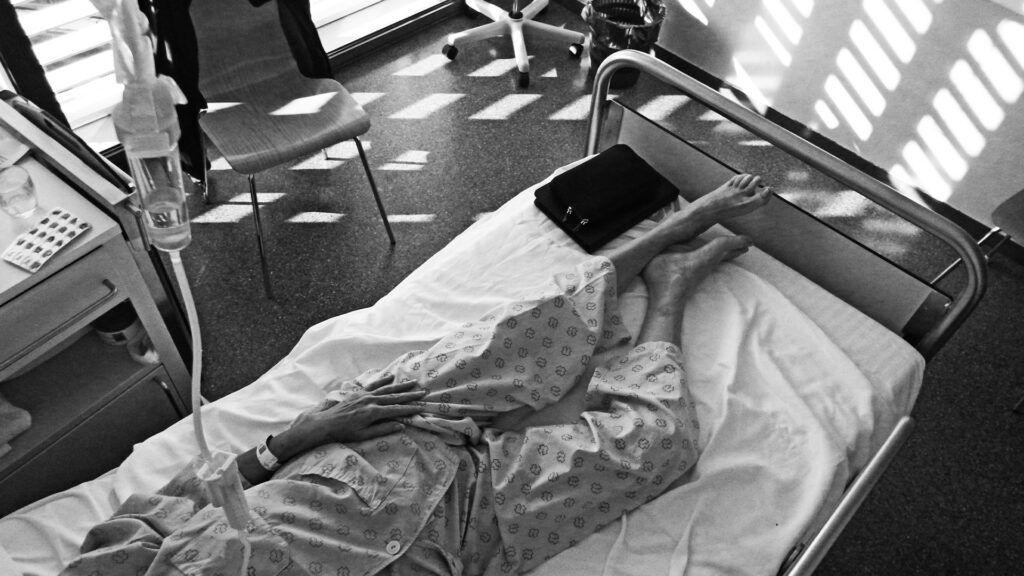Sepsis is not contagious, although some contagious infections can lead to sepsis. Some infections are more likely to result in sepsis, and certain people are at higher risk of developing it than others.
Sepsis is an extreme and dysfunctional immune response to infection. The condition usually occurs due to bacterial infections but may also be due to viral or fungal infections.
If someone with sepsis does not receive prompt treatment, they may be at risk of organ failure, tissue damage, or death.
This article explores whether sepsis is contagious and the symptoms, treatment, and prevention of sepsis.

Sepsis is
Sepsis is not an infection or an infectious disease. Rather, it is an overreaction of the immune system in response to an infection.
Sepsis
An extreme immune system response to an infection can cause the body to attack healthy organs and tissues mistakenly. This may lead to organ damage and, in severe cases, death.
While a person cannot spread sepsis, they may spread the germs that cause infection, which can trigger sepsis.
Some types of bacteria are
Certain groups of people are more likely than others to develop sepsis. These include:
- people aged 75 and older
- babies younger than 1 year
- babies born prematurely
- babies whose birthing parent had an infection while pregnant
- people who have recently given birth, had an abortion, or had a miscarriage
- individuals who have diabetes
- those with a weakened immune system
- people who have recently undergone surgery
- individuals who have recently had a serious illness
The symptoms of sepsis can include:
- feeling short of breath
- extreme pain or discomfort
- clammy or sweaty skin
- fever, or feeling very cold and shivering
- confusion and disorientation
- rapid breathing
- rapid heart rate
Without treatment, the sepsis symptoms can progress toward severe sepsis and septic shock.
If this occurs, a person may experience organ damage, hypotension, multiple organ failure, or death.
Sepsis requires prompt treatment, as delays to treatment
To treat sepsis,
- administer antibiotics to treat a bacterial infection
- treat the cause of the infection
provide breathing assistance , such as intubation or ventilation, if necessary- help maintain blood flow to the organs with intravenous fluids and oxygen
- remove dead or damaged tissue, if necessary
According to the
These steps include:
- practicing appropriate hand hygiene
- ensuring they are up to date on all recommended vaccines to help prevent infections that may lead to sepsis
- keeping cuts clean and covered until they have fully healed
- monitoring and treating current health conditions
- being aware of the signs and symptoms of sepsis to help seek treatment and prevent the condition from reaching more severe stages
- seeking immediate, urgent medical attention if sepsis occurs to prevent the condition from progressing
Below are answers to common questions about sepsis.
How long does it take to die from sepsis?
The time it takes for sepsis to cause death varies.
Around
What is the most common cause of sepsis?
The
Can sepsis spread through saliva?
No, a person cannot spread sepsis through saliva or any other bodily fluid, as it is not a transmissible disease. Sepsis is not contagious, although someone may spread an infection that may lead to sepsis.
Sepsis is not contagious, as it is not a transmissible disease. Rather, sepsis is a dysfunctional immune response the body may produce when a person develops an infection.
Some of the infections that may trigger sepsis can be contagious. A person may spread bacteria, such as E. coli., that can lead to sepsis.
Certain groups of people may be at higher risk of developing sepsis than others, including babies younger than 1 year and those older than 75 years.
People can take steps to prevent sepsis, such as practicing appropriate hand hygiene and vaccinating against infections that could lead to sepsis.
